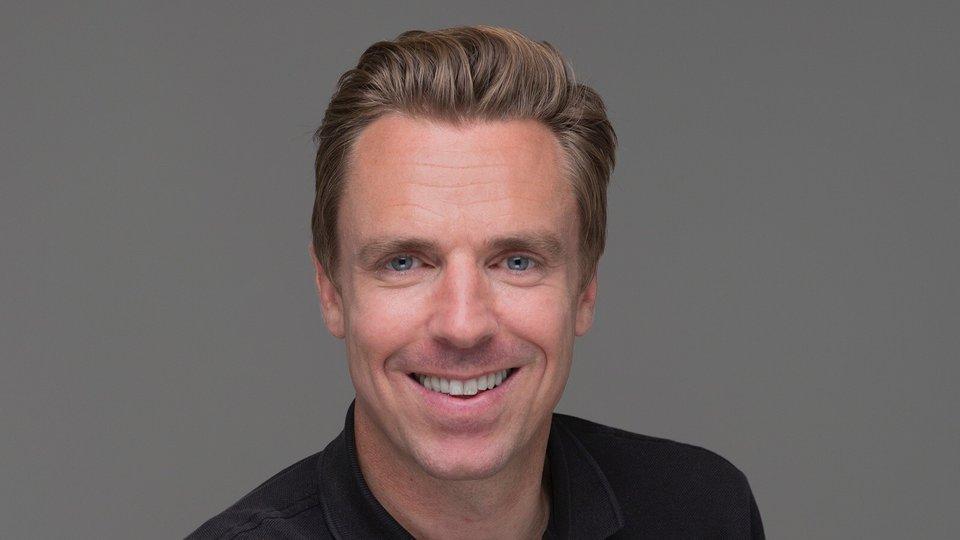In an interview, the newly appointed CEO of Piaget talks about the opportunities in optimising in-store experiences and accelerating the growth of digital and offline spaces.
Chabi Nouri on Piaget: “We Are Embracing Digital Naturally”

Over the last decade, collaborations between luxury brands and contemporary artists have gone beyond mere artistic partnerships towards a new kind of luxury branding.
PARIS – Art and fashion have always developed side by side, for fashion, like art, often gives visual expression to the cultural zeitgeist. During the 1920s, Salvador Dalí created dresses for Coco Chanel and Elsa Schiapparelli. In the 1930s, Ferragamo’s shoes commissioned designs for advertisements from Futurist painter Lucio Venna, while Gianni Versace commissioned works from artists such as Alighiero Boetti and Roy Lichtenstein for the launch of his collections. Yves Saint Laurent’s vast art collection, recently auctioned at Christie’s in Paris, testified to his great love of art and revealed the influence of a variety of artists on his own designs.
In the 1980s, relationships between luxury brands and artists were advanced when Alain Dominique Perrin created the Fondation Cartier. In the Fondation Cartier pour l’Art Contemporain, a book marking the foundation’s 20th anniversary, Perrin says he makes “a connection between all the different sorts of arts, and luxury goods are a kind of art. Luxury goods are handicrafts of art, applied art.”
The Fondation Cartier pour l’Art Contemparain building in Paris
In an interview, the newly appointed CEO of Piaget talks about the opportunities in optimising in-store experiences and accelerating the growth of digital and offline spaces.
You were officially appointed as CEO last April, what have been your most important challenges so far?
Chabi Nouri: The first steps have been to clearly define the best opportunities for Piaget. The goal is to well understand the DNA, the key code, the key assets. On the other side, it is the integration of the team, understanding the team. The good thing is that I have been at Piaget for several years with responsibilities. It has been a smooth transition.
What is your management style?
Team work, brainstorming and cross-functional workshops are crucial. I believe in disruption. I am challenging and demanding, but at the same time, I encourage transversal work, and not only functional work. People from different departments have to talk and work together. Speed is very important, we need to move quite fast. We need to work in a very inclusive and transversal way.
There is now the launch of a new Piaget e-commerce platform in the US, as well as a partnership with Net-a-Porter and Mr Porter: what are you expecting from these initiatives?
This is part of our daily life, and so it is part of our clients’ daily lives. It is a matter of how people live today. Therefore, we are naturally embracing the digital. We need to push it even further, to stay connected with our clients and to be able to express ourselves in a direct way. We need to be with the clients when they are at home, through their desktop, through their mobile phones for example, and then in the physical stores too. It is important to engage with clients whenever and wherever they are.
Why should both direct and indirect e-commerce be carried out?
It is important to have a direct channel with Piaget’s values and environment. But it is also important to have external channels, where the environment is not the same, and where clients are engaged or could be engaged with Piaget. In an environment such as Net-a-Porter’s, users look for a specific kind of lifestyle. It is interesting for us to express the brand in this kind of environment. While on our website, it is a more inclusive environment. We need both approaches.
When you were appointed as CEO, you said you would emphasize Piaget’s e-commerce strategy. Which markets are the most promising?
Definitely the USA and China, but also South Korea and the Middle East for example. We continue to strive and accelerate in the digital world in order to display our creations. Today, it is fascinating to see that we have all these channels, each one of them with a specificity to leverage on different stories, on our website, on social media, or through the retailers. And all of that has to work together.
Interested in strengthening your brand’s positioning for specific markets and consumers?
Online selling for luxury watch and jewelry brands is not a standard practice. Will it change?
It is how we and the clients live that will make the difference. So yes, it is a new reality that brings many exciting opportunities for the luxury watch and jewelry brands. Online selling will continue to grow.
Especially in considering China as a growing market of importance for them. The Chinese are very big on online shopping, even for luxury products. What steps are being taken to address this at Piaget?
We have our own website in China and a strong presence on WeChat and Weibo, which allows us to have discussions with clients and friends of the brand. We create movies with Hu Ge and Yang Mi, very important influencers and talented people. These productions are broadcasted on digital channels. Today, because we want to communicate more with young clients, it is a very good way to emphasize awareness and the desirability of the brand.

Image credit: Piaget
The Chinese market has vastly changed over the last 10 years with the push for e-commerce, which is now stronger than ever. Piaget started its e-commerce platform in 2012, has it seen a significant increase in sales from digital channels since?
We see this overall. Even more so on the digital channels. Chinese consumers shop and discover mainly online. And it’s going faster and faster. They are very reactive. It is crucial for us to support Chinese travellers across the world and to give them a Piaget experience wherever these clients go. It is important for us to be with them. Our clients are international; therefore, we want to be connected to them across the world.
100 boutiques, 350 retailers: how is the store network going to evolve?
We are well represented across the world. The challenge is to push in terms of experience in our stores. We have a strong presence in being in the most important areas in the world. We do not want to open new stores. The opportunity is now in optimizing our stores’ experience, accelerating the growth of our digital and offline space, while keeping the network as it is today.
Join Luxury Society to have more articles like this delivered directly to your inbox
With Possession and Olivia Palermo, Piaget has strengthened its women segment. What are the next steps?
We have a strong feminine DNA, it’s not something new. However, today we want to focus more on this: accelerating the jewelry segment. We are one of the most unique “maisons” that can talk to men and women via watches and jewelry, but also via a fusion between watches and jewelry. This is another opportunity to express this know-how.

Image credit: Piaget
Piaget Society: what is the concept about?
This is not a project. It is an authentic relationship that has been formed naturally between Piaget and personalities from across the world, friends of the brand, artists, and musicians. This community shares experiences about arts and culture, music or cinema, while questioning the future. For Piaget, it is another opportunity to express the audacity of our creations. It is like a family that shares these values and shares their joie-de-vivre, and all our other Sunny Side of Life values like audacity, self-surpassing, allure or freedom.
We all gather during specific events, such as the one in Monaco that we held this year or the one in Rome for the launch of our new High Jewelry collection, Sunlight Journey, where many celebrities attended such as: Olivia Palermo and husband Johannes Huebl, Coco Rocha, Juliette Binoche, Barbara Palvin, Shanina Shaik, Cheyenne Tozzi and Claudia Cardinale. Clients, collectors, celebrities, brand enthusiasts… the “Piaget Society” is like one big family sharing all these values.
Cover image credit: Piaget

Editor, International, Luxury Society
Dino Auciello is the International Editor of Luxury Society. He is also Head of Marketing & Client Development at DLG, the parent company of Luxury Society. Based in Geneva, Dino was previously Deputy Chief Editor of the Swiss business magazine, Bilan.



